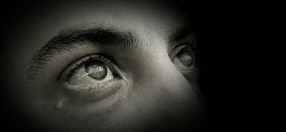This week, we’ve been talking a lot about acne. In continuing with that theme, let’s take a look at Acne Rosacea.
Acne Rosacea is an emotionally stressful skin condition that, left untreated, can also cause overgrowth of tissue. The correct medical term is papulopustular rosacea – which actually is not a type of acne at all. Although it looks like common acne, it results from a weakness in the blood vessels in the face that cause them to dilate more easily and for longer periods of time than normal – sometimes permanently. (1)
Adult acne rosacea is a disease that affects the skin on the face, most notably the cheeks, nose, forehead and chin that appears like a red rash. The causes are not known. Symptoms begin in the adult years between the ages of 30 and 60.
Rosacea runs in fair skinned families and tends to be more severe in men but more prevalent in women. Although there is no cure, treatment can keep the symptoms under control and keep the condition from getting worse. (2)
Certain things worsen the condition and are triggers. Sunlight, hot drinks, alcohol, spicy foods, strenuous exercise, stress, and hot and cold temperatures are triggers that increase the dilation of the blood vessels in the face. Sufferers must work to find their particular triggers and avoid them to decrease the severity of the disease.
Treatments for rosacea range in effectiveness from person to person. Anti-inflammatory have proven useful in treatment as have antibiotic creams to the affected areas. In severe cases surgery may be necessary to repair the broken blood vessels.
Acne rosacea is often accompanied by bumps, pimples and skin blemishes but there aren’t blackheads associated with this condition. Treatment works best on the pimples and bumps. The redness is much harder to treat. Without treatment the symptoms recur more often, become permanent and can cause swelling of the nose and growth of excess tissue.
After treatment has begun it can take 2 months for your skin to look better. As the skin begins to improve the sufferer can usually cut down or eliminate the antibiotics. It is difficult to anticipate how long treatment is necessary since the condition differs from person to person. (3)
Another treatment for acne rosacea is to protect the skin from overexposure to the sun. The sufferer should wear sunscreen since sunburn can trigger an outbreak extremely quickly. Treatment for acne vulgaris can irritate acne rosacea and cause the symptoms to worsen significantly.
(1) National Rosacea Society: what is Rosacea? http://www.rosacea.org/index.php
(2) US National Library of Medicine: Rosacea http://www.rosacea.org/index.php
(3) International Rosacea Foundation: Treating Rosacea with Antibiotics http://www.internationalrosaceafoundation.org/antibiotics.php4


Recent Comments